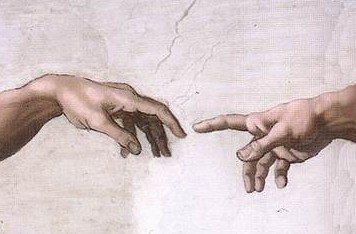Listen to Sermon
Pastor Tom Johnson, March 25, 2018
As Jesus enters the ancient, holy capitol of Israel, the crowds cry out “Hosanna!” Hosanna means “Save now!” In Mark’s Gospel, they are clearly crying out those words to Jesus by quoting Psalm 118. “Hosanna! Blessed is he who comes in the name of the Lord! Blessed is the coming kingdom of our father David! Hosanna in the highest!” With these words they are welcoming the promised Messiah. And they are praying for deliverance from their captivity. Jerusalem is the city of David. It is the holy city with the Temple of God’s presence. It is the center of political and religious activity. But it is under siege. The Romans conquered and now occupy that city. King Herod sits on the throne but is not rightfully king. Messiah comes to deliver his city and his nation from their oppressors. He comes to free them to be a great nation again as it was in the days of King David. They have been waiting for hundreds of years. There is a sense of urgency in those words: “Save now!” It certainly seems like a triumphal entry. They hail him as king and deliverer. They receive him as a powerful general coming into the city to liberate it, right every wrong, and lead them to peace and power on the world stage.
But there is a tragic irony to this prayer. We know the rest of the story—how their crying out for their own salvation is quickly changed to crying out for Jesus crucifixion. Instead of welcoming Jesus as their Messianic King, they will mock him with insults and a crown of thorns. “He saved others,” they will taunt, “but he cannot save himself.” They will put a sign above his head that says, “The King of the Jews.” On closer examination, their prayer, “Hosanna,” actually falls short. They are looking only for immediate, political liberation. They want salvation for a particular city and people—Jerusalem and the Jewish people. I do not want to minimize the horror of what it was like to live under the tyranny of Rome. They lived under constant fear and control. It seemed that their dream to be an independent and prosperous nation was dashed at every turn. And we know that their hopes will be crushed again. This happens any time we make Jesus someone he is not. It happens when our understanding of who he is falls short. It happens when our prayers fall short by our self-absorption and limited vision. I also do not want to minimize the things that plague us. There are many formidable challenges in our lives. We should pray at all times and for all things. God cares about every detail of our lies. But how should we pray, “Save us now”? Do we merely pray for salvation from violence, affliction, danger, disease, distress, or loneliness? Do we pray for the Lord to save us from only harm or pain? Our prayers may also fall short.
The King who enters Jerusalem humbly on a donkey. His true power and authority is hidden from our eyes. He comes to save us from an even more pernicious and deadly enemy—our sin. And not just the sin of one people in one city but the sin of the world. He comes to deliver us from the power and penalty of sin. His passion is to save us from sin—his passion is for our true salvation in every sense of the word. He has a greater sense of urgency than the crowds to deliver us from evil. He has a greater vision and plan of salvation. “Save now,” we pray. And Jesus does just that. He saves them and us by immediately going to the cross. There is beautiful irony in the fact that Jesus answers our prayers...even though our prayers fall short. And he answers them in greater fullness than what we ask.

Just moments from now we will pray Hosanna again as we sing the Sanctus: “Hosanna, hosanna, hosanna in the highest. Blessed is he, blessed is he, blessed is he that cometh in the name of the Lord. Hosanna, hosanna, hosanna in the highest!” Many of us have sung those words week after week and year after year. Like those who greeted Jesus into Jerusalem that day, we too may not have in mind it’s full meaning. Thanks be to God that it does not depend on our understanding or well crafted prayers but upon God who is rich in mercy. “Save now, Jesus, you who come as King into our lives to give us your true Body and Blood! Save us now from our captivity to guilt, regret, and our sins. Save us now! Bring us forgiveness and promise of eternal life!” We may not know exactly for what we are praying. But the King of kings and Lord of lords does far more than we could ask or ever imagine. He takes upon himself the sin of the world. He goes to the cross to suffer and die. And he will rise again in triumph over death, sin and the devil.




